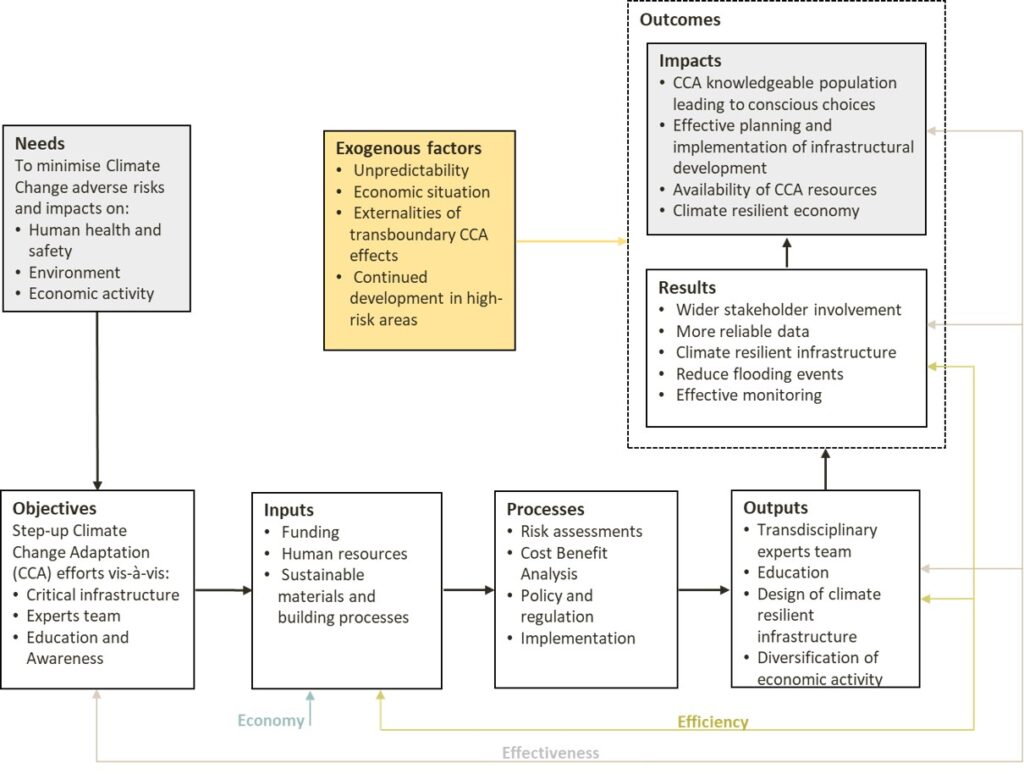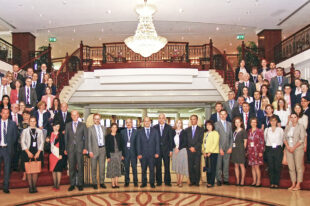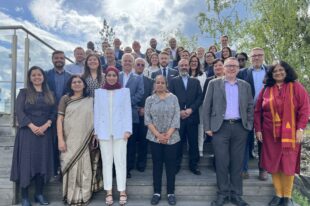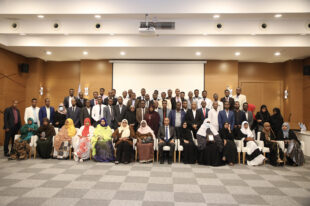
By Elton Camilleri, Principal Auditor – National Audit Office (Malta)
Small islands like Malta are particularly vulnerable to climate change hazards. In October 2019, the Maltese Parliament had unanimously declared a climate emergency, stressing the need to take new measures to address this environmental phenomenon(1).
National Audit Office (NAO) Malta adopted a multi-faceted approach to better understand the risks posed by climate change impacts and the complexities associated with auditing this subject. This approach included the undertaking of a performance audit on Climate Change Adaptation (CCA) that adopts a more horizontal approach. NAO Malta conducted preliminary meetings with stakeholders including academia, to assist in the identification of climate change risks and the development of audit criteria. Consequently, NAO Malta opted to focus on the hazards associated with flooding and sea level rise. Figure 1 presents the programme logic model associated with the ongoing performance audit.

Currently, the audit team is in the process of concluding the fieldwork phase. This relates to the implementation of relevant measures, the monitoring framework in place, as well as the estimated cost of inaction.
This multi-faceted approach for auditing climate change matters also includes the active participation in various ongoing initiatives within the International Organisation of Supreme Audit Institutions (INTOSAI) and the European Organisation of Supreme Audit Institutions (EUROSAI) Working Group on Environmental Auditing (WGEA), which include:
- The Climate Change Adaptation Actions training being provided by the INTOSAI Development Initiative (IDI). Such training also includes the practical application of different auditing tools such as stakeholder analysis and the risk verification diagram.
- The cooperative audit that is being carried out jointly with other Supreme Audit Institutions (SAIs) within the auspices of the INTOSAI Working Group on Environmental Auditing.(2) This exercise is being carried out in conjunction with the aforementioned training on CCAA and consequently facilitates the alignment of the respective audit objectives as well as the expected outcomes.
- The ClimateScanner initiative, led by SAI Brazil. This web-based tool is intended to assess governmental actions vis-à-vis climate change. NAO Malta participated in the “Global Call to the ClimateScanner” and the “EUROSAI Regional Technical Workshop on ClimateScanner” held in New York and in Prague respectively.(3) NAO Malta is committed to set-up the required in-house training for auditors as well as auditees.
- The EUROSAI project group on climate change, an opportunity for SAIs to regularly and informally discuss emerging issues for governments’ approaches to climate change.
- The Spring and Annual Meetings of the EWGEA that serve as a platform to share knowledge and auditing experience on the subject matter.
This emerging approach to auditing climate change is highly advantageous, enabling conclusions based on scientific evidence and robust audit methodologies. It is strengthened by knowledge sharing within the SAI community and opportunities for capacity building through training. This strategy also helps NAO Malta manage the complexities of auditing this subject, particularly in defining the audit scope and establishing sound criteria.





